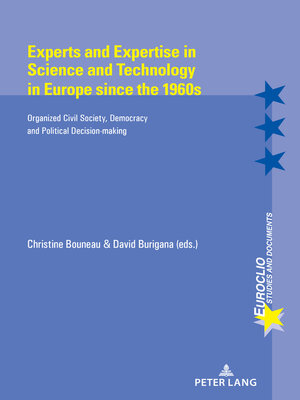Experts and Expertise in Science and Technology in Europe since the 1960s
ebook ∣ Organized civil Society, Democracy and Political Decision-making · Euroclio
By Christine Bouneau

Sign up to save your library
With an OverDrive account, you can save your favorite libraries for at-a-glance information about availability. Find out more about OverDrive accounts.
Find this title in Libby, the library reading app by OverDrive.



Search for a digital library with this title
Title found at these libraries:
| Library Name | Distance |
|---|---|
| Loading... |
Do the politicians actually take decisions, or rather the experts do it in their place? In other words, it is a matter of understanding whether the political stakeholders/representatives simply approve the final stage of a decision procedure led by the experts they have delegated, since they lack cognitive skills or because the experts do not try enough to explicit potentials and risks involved. Here lays the possible loss of democratic legitimacy in the decision-making process. This brings into question the responsibility of a ruling class to which the political representatives and secondarily the experts belong.
This book analyses the interplay of these different actors in the political relations among States since the 1960s: this interaction capability becomes a key factor for the international accountability of a country, and above all for the democratic reliability of its decision-making process. Then we have to consider the role of the organized civil society.
In that way, expertise provides the basis for the mediation among the States, and then expertise goes for the legitimacy of power practices in all parties engaged, and in the decision-making process inside the democratic arenas.







